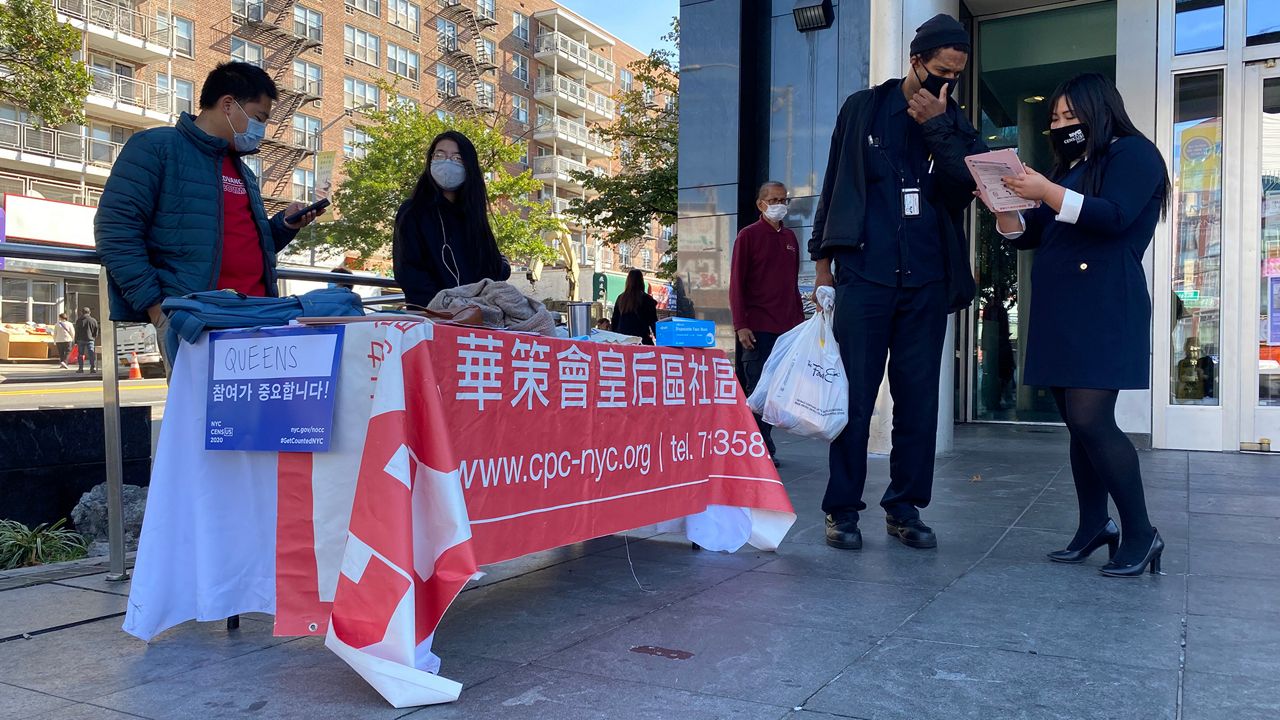Vicki Zheng was only six years old at the time of the last U.S. Census. But this time, she’s making sure she does her part to get her community counted.
“I can do something about it [this time],” said Zheng, a Bronx High School of Science student. “Just one person not filling it out honestly has a huge impact on the community.”
Zheng was one of several volunteers from two Asian community groups out Thursday morning in Flushing to get as many people as possible to fill out the 2020 census. It was a last push following the Supreme Court’s ruling on Tuesday that the U.S. Census could end this week. The decision was a victory for the Trump administration, whose efforts to end the count early had been rejected previously by multiple lower courts.
While the new deadline of Friday morning was a defeat for local and state governments and advocacy groups that sued to keep the count going, people who have been working for months to get census numbers up weren’t unprepared for it.
“We weren't that surprised because we knew the Trump administration would try every way in terms of cutting the census short,” said Howard Wong, civic engagement manager of the Chinese-American Planning Council.
Armed with iPads and pamphlets and fliers in different languages, volunteers from his organization along with the MinKwon Center for Community Action made one last outreach effort outside Queens Library to help people fill out the census. Their table was strategically set up on the steps leading to the library on Main Street, which is feet away from one of the city’s busiest commercial districts.
“Three months of outreach work is going to define the next 10 years of our district and borough,” said Sandra Choi, civic participation manager at MinKwon Center. “This current administration has made a very hostile environment for people who are immigrants and people that are undocumented to be counted.”
Wong and Choi were joined by high school volunteers who took time off from their remote learning instruction to convince strangers to fill out the census.
New York State pays more in taxes to the federal government than 47 other states yet receives only 90 cents for every tax dollar paid—well below the national average of $1.21. And according to one Census Bureau report, Asian Americans were the least likely of any racial group to express familiarity with the census. Advocates often attribute this to the diversity of the various Asian communities and the resulting access and language barriers.
“For a lot of people, the education in terms of the census hadn’t penetrated,” said Wong. “And it's also due to the pandemic. A lot of outreach work was stopped before we were able to do it.”
But it’s not just resources that are on the line; it’s also representation in Washington as census results determine the number of House representatives for each state. In 2012, Grace Meng became the first Asian American from New York to be elected to Congress in the newly redrawn sixth congressional district, which includes Flushing, and is approximately 40 percent Asian American.
“Redistricting is a really important part of the census efforts because it's all about political representation from your community,” said Choi. “And we know that AAPIs are underrepresented in almost every form of government so that's critical to us.”
And while passersby still expressed some reluctance and apprehension about filling out the census, the outreach volunteers said they had been making strides.
The pitch Choi and others give to convince people to fill it out?
“Your census is your lifeline,” she said. “You need to do it so that members of your community, your family, and your networks can thrive in this country.”



